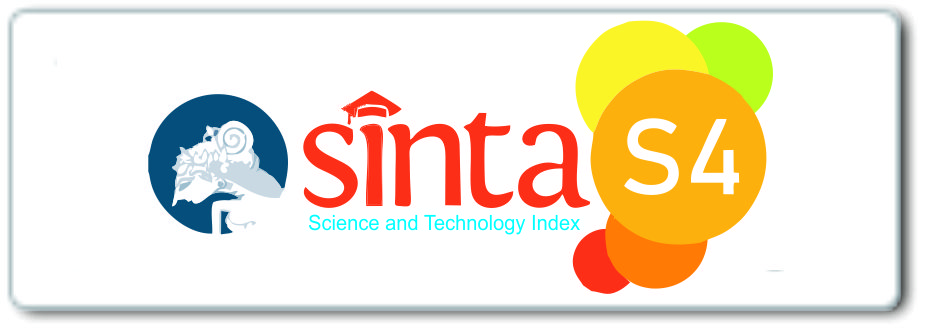PENGARUH GENDER DAN KEYAKINAN TERHADAP PERILAKU SOCIAL AND ENVIROMENTAL ACCOUNTING (SEA)
DOI:
https://doi.org/10.32332/jsga.v4i02.5789Keywords:
Gender, Keyakinan, Sikap, Akuntansi Sosial dan LingkunganAbstract
This study aims to of determine how the influence of gender and beliefs on the behavior/attitude of social and environmental accounting (SEA). Research on social and environmental accounting (SEA) so far has concentrated more on corporate disclosure. However, research that investigates how a person's attitude towards social and environmental accounting is rarely discussed. SEA is accounting information that develops the relationship between business and society, community, and nature. In addition, SEA also studies the concept of sustainability, where according to SEA, natural resources need to be preserved for the sustainability of future generations. The current generation of young people is seen as having no concern for social issues and environmental sustainability. This may be due to factors of belief and cultural background. This study examines the effect of gender and beliefs on SEA attitudes. Four dimensions of belief (permanent ability, fast learning, simple knowledge, and specific knowledge) were adopted from Schommer (2005). The results of the study revealed that gender differences did showed an influence on their attitudes towards SEA. Respondents who believe in the importance of social and environmental accounting tend to have more positive attitudes towards environmental sustainability.
Keywords: Gender, Belief, Attitude Towards, Social and Enviromental Accounting
References
Abdullah. S. And Chen. L.E. (2009). Gender and Belief Factors On Attitude Towards Social and Enviromental Accounting (SEA). Social and Management Research Journal. Vol. 6. No. 2, 51-69. 2009.
ACCA. Report Summary The State of Corporate Enviromental and Social Reporting In Malaysia. (2004). www.accglobal.com.pdfs/enviroment/other/malaysian. Diakses pada 25 Oktober 2022.
Amin, E.C. et al. (1996). Gender Differences in Determing the Ethical Sensivity of Future Accounting Professionals. Journal of Business Ethic 15.
Brown. J., and Fraser. M. (2006). Approaches and Perspectives in Social and Enviromental Accounting : an Overview of the Conceptual Landscape. Business Strategy and the Enviroment. Bus. Strat. Env. 15. 103 – 117 (2006).
Dinas Lingkungan Hidup. (2022). Kerusakan Hidup dan Penyebabnya. https://dlh.luwuutarakab.go.id/berita/5/kerusakan-lingkungan-hidup-dan-penyebabnya.html#:~:text=Kerusakan%20lingkungan%20hidup%20dapat%20diartikan,fauna%20liar%2C%20dan%20kerusakan%20ekosistem.
Fishbein, M. and Ajzen, I. (1975). Belief, Attitude, Intention and Behaviour: An Introduction to Theory and Research. AddisonWesley Publishing Co.
Harmuningsih. D., dan Saleky. S.R.J. (2017). Pengetahuan, Persepsi, dan Sikap Generasi Muda Tentang Perubahan Iklim dan Pengaruhnya Terhadap Niat Perilaku Pro Lingkungan. SPECTA Journal of Technology, Vol. 1, No.3, November – Desember 2017. ISSN : 2549 – 2713.
Kusuwardani, A. Dkk. (2017). Urgensi Akuntan Sosial dan Lingkungan Perspektif Institusional. Proceedings ISSN 2552-3936.
Kurniawan P.S. (2016). Sintesa Unsur – Unsur Spritiualitas, Budaya, Dan Kearifan Lokal Masyarakat Bali Dalam Materi Kuliah Akuntansi Sosial dan Lingkungan. Jurnal Pendidikan Akuntansi Indonesia, Vol. XIV. No.1. Tahun 2016.
Marriot, P. and Marriot, N. (2003). Are we turning them on? A longitudinal study of undergraduate accounting students’ attitudes towards accounting as a profession. Accounting Education 12.
Mathews, M. (2005). The Development of Social and Environmental Accounting Research 1995-2000, Retrieved on 6 November 2006, from www.accountancy.massey.ac.nz/docs/Discussion%20 paper/2005.pdf.
McCelland, S. (1994). Training needs assessment data gathering methods: Part 1, survey questionnaires. Journal of European Industrial Training 18.
Rusmadi. (2016). Pengarusutamaan Gender Dalam Kebijakan Perubahan Iklim Di Indonesia. SAWWA. Volume 12, Nomor 1, Oktober 2016.
Schommer, M., Duell O, and Hunter, R. (2005). Epistemological beliefs, mathematical problem solving beliefs and academic performance of middle school students. The Elementary School Journal 105.
Sekaran, U. (2000). Research Methods for Business: A Skill-Building Approach. United States of America: John Wiley and Sons.
Souryana, A. (2020). Implementasi Akuntansi Sosial dan Lingkungan Di Indonesia. https://ojs.unud.ac.id/index.php/jiab/article/download/2639/1853.
Stevenson, L. (2002). Social and enviromental accounting teaching in UK and Irish universities : A research noteon changes between 1993 and 1998. Accounting Education II.
Yakhou, M. And Dorweiler, V. (2002). Enviromental accounting coverage in the accounting curriculum : A survey of U.S. universities and colleges. Journal of Education for Business.
Downloads
Published
Versions
- 2025-05-16 (2)
- 2023-01-24 (1)
Issue
Section
License
Copyright (c) 2023 Witantri Dwi Swandini

This work is licensed under a Creative Commons Attribution-ShareAlike 4.0 International License.






